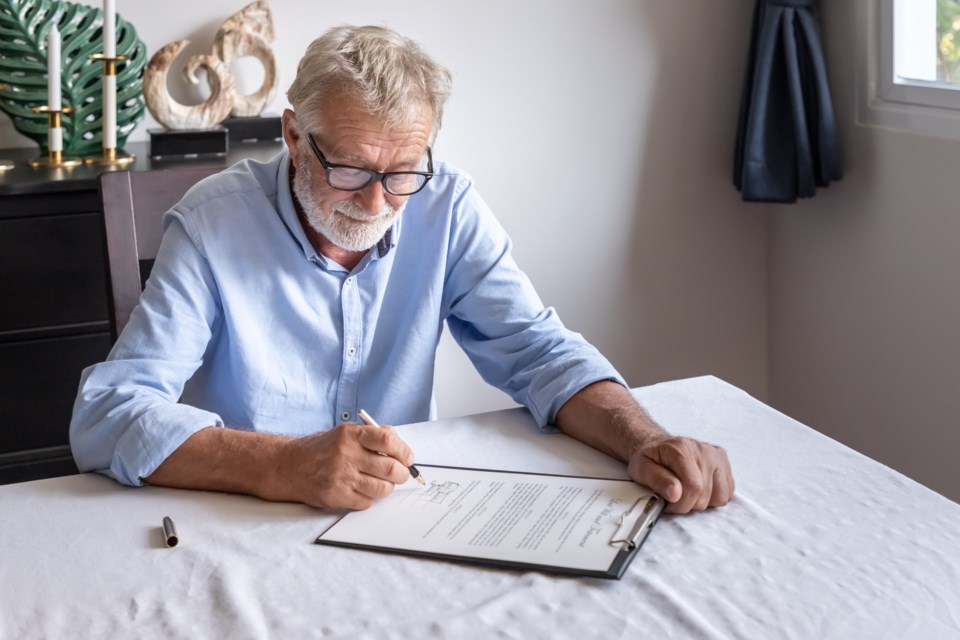Let’s be honest, nobody wants to think about their own mortality. It’s not exactly a conversation starter. But, planning for the distribution of your assets after you’re gone, that’s crucial.
Many people mistakenly believe their possessions will automatically go to their nearest and dearest if they die without a will. This couldn’t be further from the truth. Dying without a will, legally known as dying “intestate”, can trigger a whole heap of unforeseen complications.
Imagine this: you’ve unexpectedly shuffled off this mortal coil. Your family, already grieving, is now faced with a bureaucratic nightmare, wrestling with complex provincial laws to divvy up your belongings.
The process can drag on for ages, turning an already difficult time into a logistical and emotional minefield. And if you don’t have any dependents, like children or a spouse, things get even more tangled.
Provincial laws governing intestacy vary wildly across Canada. What happens to your assets depends entirely on where you live. You might think your assets will neatly go to your closest relatives, but the reality is often far less straightforward.
In some cases, your assets could end up in the hands of distant relatives you barely know, bypassing close friends or cherished charities you’d hoped to support. The law, unfortunately, doesn’t care about your personal feelings; it follows a rigid hierarchy.
Beyond the emotional fallout, dying intestate throws up significant administrative hurdles and costs. For Alex Usakov, whose brother recently passed without having a will, the hurdles seemed insurmountable. He now has to petition the court to name himself as executor of his brother's estate.
This court document allows Usakov to receive his brother's government death benefits, as well as access to any bank accounts his brother may have had. “It’s complicated. You can’t do this without a lawyer, and they cost money,” said the grieving brother. “He didn’t have much, but he has some financial issues that need to be dealt with.”
The process is long because of an incredible amount of backlog in the court system due to COVID. In short, the courts appoint an administrator to manage your estate, a process often involving drawn-out legal battles, hefty fees, and considerable delays. A will, on the other hand, lets you choose your executor, someone you trust implicitly to handle everything smoothly and efficiently.
The digital age adds another layer of complexity. We’ve all got online accounts, social media profiles, and perhaps even digital currencies. Without a will, these digital assets can become a real headache for your loved ones, leaving them struggling to access or manage your online life.
Creating a will isn’t some insurmountable task. “Simply writing your wishes on a piece of paper, signing it, and having a witness sign, is legal and binding,” says lawyer Douglas Kearn who practices in Elliot Lake. “There is a certain criteria for witnesses that must be followed in order for the will to be legal,” he adds.
Consulting a legal professional who specializes in will preparation is encouraged. Legal professionals in estate planning can guide you, or you might find helpful online resources and templates.
It might feel a bit morbid, but it's a gift to your loved ones, offering them peace of mind during an already challenging period.
Also important to consider is that many assets, like life insurance proceeds, TFSAs, RRSPs, RRIFs, and segregated funds, allow you to name a beneficiary directly. If you name your estate as the beneficiary, these assets become part of your estate and are subject to probate fees. Naming a specific beneficiary bypasses this process entirely.
A will isn’t merely a good idea; it’s a necessity, especially for Canadians without dependents. Don’t leave your legacy to chance; take control of your estate planning today. It’s a simple act that can prevent a world of heartache and hassle for those you care about.
“I wish my brother had a will, it would save me so much time and money,” said Usakov.
